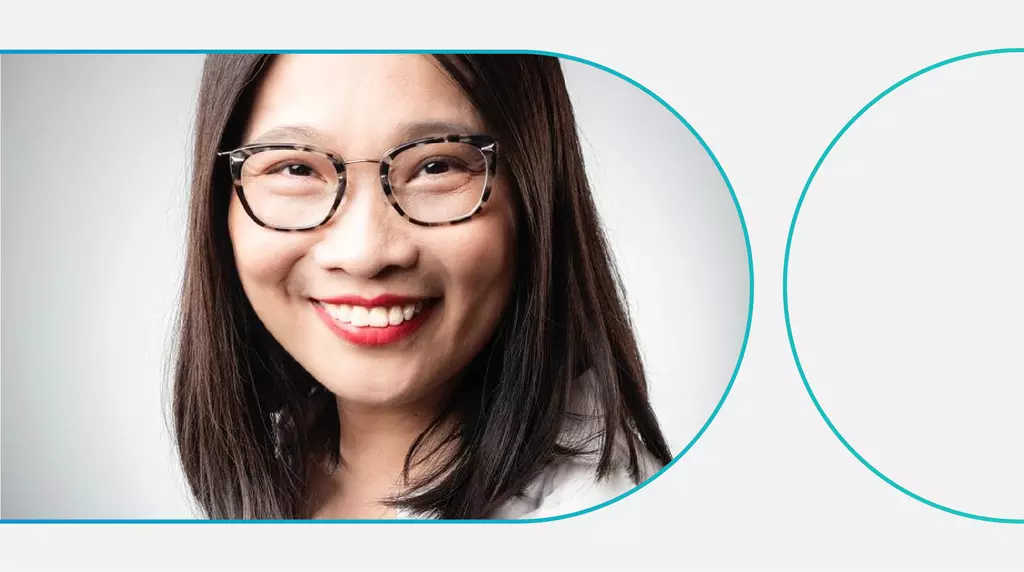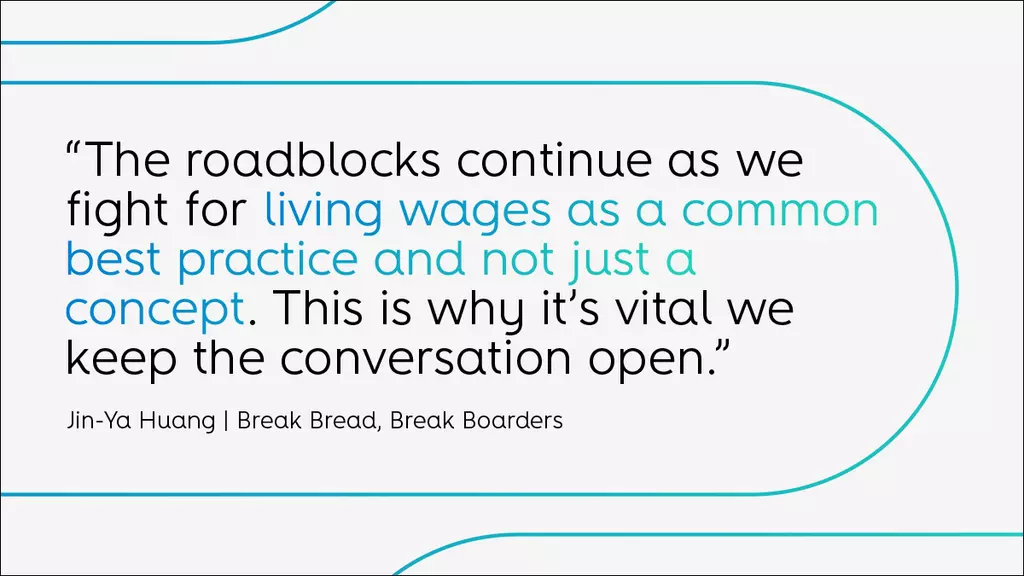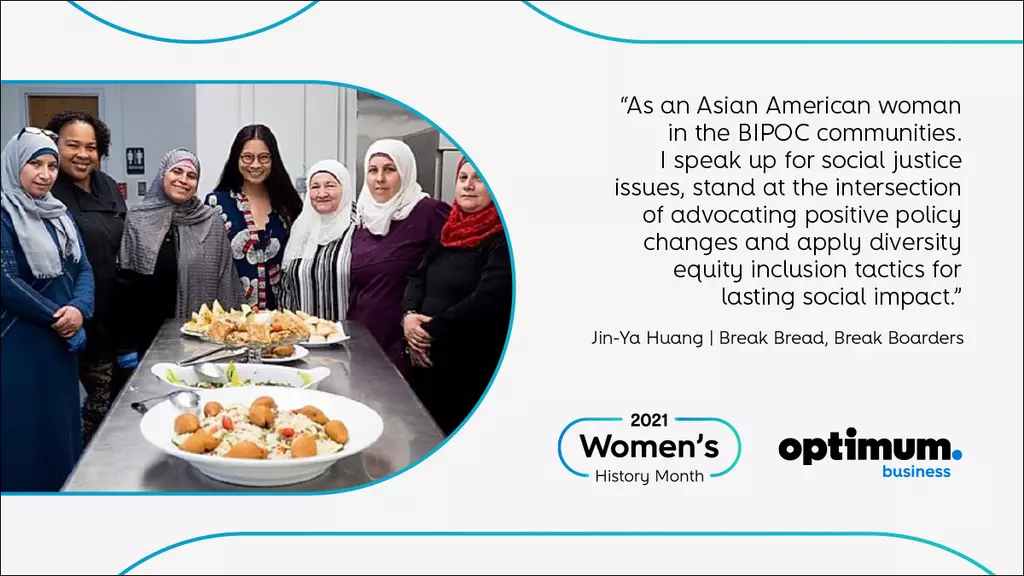
Already an Optimum Customer? Call or chat to speak with a representative about your account.
Women’s History Month Small Business Spotlight: An Interview with Jin-Ya Huang of Break Bread, Break Borders

An Interview with Jin-Ya Huang of Break Bread, Break Borders
Break Bread, Break Borders (BBBB) is more than just a catering company with a cause. It is also an educational program that economically empowers refugee women through cooking in the Dallas-Fort Worth area. The women are mentored by professional chefs, restaurants, caterers and culinary consultants. Through food, culture, and powerful storytelling, BBBB breaks bread with the community while simultaneously breaking down borders.
Jin-Ya Huang, an immigrant from Taiwan, founded BBBB to honor her mother’s legacy after she lost her to cancer. As a mother herself with an 11-year old son, Jin-Ya has ensured that her mother’s memory as a cook, an entrepreneur, and an advocate for immigrants lives on in the work of BBBB. Today, Jin-Ya along with the whole team at Break Bread, Break Borders, continue to find joy as they impact the lives of the women they work with. Jin-ya and her team share their journey and insights from their experience running Break Bread, Break Borders to help inspire individuals looking to start their own business.
What advice would you give about starting a business?
Starting a business was completely accidental for me. As an interdisciplinary artist, I initially set out to create an art project to pay homage to my mom, Margaret Huang, make pop-up community dinners, share a safe space to have courageous storytelling / conversations - all to honor her legacy. Then because the refugee women I serve in the communities asked for jobs instead, Break Bread, Break Borders was born. My advice is: find your passion, serve your communities, live your purpose. Remember failure is success in progress. My favorite quote by Simon Sinek that befits the idea of starting a business - “Dream big, start small. But most of all, start.”
How would you recommend setting goals/achieving goals?
For me, writing down your goals is important in the goal-setting process. You also have to be optimistic, have hope, be resilient, and meditate to actualize them. A good example is Tiffany Haddish, she maintained all this focus, and achieved her goals as a successful comedian, then went back and gave others who didn’t have the same opportunities, a chance to shine. The concept of paying it forward is an important goal for me.
Do you have any experience/advice regarding funding and overhead?
I firmly believe in investing in the community, specifically in women and girls. Statistics say women put 90% of income straight back into the communities, whereas men only contribute about 35%. This social dividend will come back to you in ten folds. My experience in human centered design indicates “social capital + human capital = financial capital.”

What essential business communication/technology tools do you recommend?
Breaking Bread, Break Borders is a very low-tech, hands-on collective. The essential business technology tools I use are G-Suite, Slack, Square, and Wix. To be honest, WhatsApp has been a lifesaver working with translators to help train logistics, operations and safety rules with the refugee cooks. These suggestions are obviously nothing new under the sun, but how each business uses the tools to curate the content and help amplify voices in the space matters.
Do you have any personal advice on how you were able to overcome challenges and persevere?
My mom always taught me to be a good neighbor, do the right thing, practice kindness and compassion everyday, plus give and ask for mentorship. All are important to help overcome challenges and embrace perseverance.
Oftentimes it is thought that as an entrepreneur, business and personal life do not exist separately. In your experience, how do the two affect one another and how do you find balance?
An entrepreneur’s business and personal life do co-exist, BUT there’s no such thing as work + life balance, there’s only possibilities of mix, blend or “integration.” In my experience, the two greatly affect each other, and I’ve never found balance, but I’ve found boundaries are real. I learned to practice them through exercising flexibility, expectations, goals, priorities, rest, and learning to be self-compassionate.
What are some tools, tips and tricks you have used and felt were helpful in your entrepreneurial experience?
I’ve found tools like finding your voice, using your superpowers for good, and lifting as you climb, are really good tips and tricks to use to help in my entrepreneurial experience.

How did you know it was the right time to grow and expand your business and what is your advice on how to do so?
I find that if you ask the community what it wants and needs, it’ll tell you how to build on existing and create new strategic partnerships, it’ll help you accomplish your goals by the people and for the people. It’s important to recognize that when the community asks for fire, you don’t bring it water.
As you were building your business, did you ever experience challenging thoughts, such as imposter syndrome or lack of confidence?
Look, everyone is going to have some doubts about decisions - but feeling unsure does not make you an imposter. We have to stop using the term “imposter syndrome,” it directs our view toward fixing women at work instead of fixing the places where women work. The impact of systemic racism, classism, xenophobia, and other unconscious biases is what causes marginalization of POC (people of color) and gender discrimination in the workplace. To create an environment that fosters a variety of leadership styles and in which diverse racial, ethnic, and gender identities is not only professional, but especially needed to create a safely belonging space. Of course, remember - lack of confidence is not lack of competence. We all need a little healthy self-doubt that can turn into positive motivation.
Have you ever experienced roadblocks during your entrepreneurial journey? If so, what were some of the roadblocks you’ve experienced and what are some solutions that helped you overcome them?
Absolutely, especially as an Asian American woman in the BIPOC communities. Racism, sexism, and all the injustices in between, that’s why I speak up for social justice issues and make sure I am bridge-builders with community partners, stand at the intersection of advocating positive policy changes, work culture renovation, run assessment of core values, share healing artistic practice and apply diversity equity inclusion tactics for lasting social impact. Language barriers are huge, to us it’s considered a disability - as an immigrant from Taipei, Taiwan, descendant of refugees who escaped China to seek freedom, my heart always to pays it forward, what my mom, Margaret Huang taught me. As it turns out, a dedicated ESL teacher in Tulsa, Oklahoma made a huge difference in my education to make sure I had a seat at the table. Mrs. Ellsworth forever inspired me to pay attention to these types of learning gaps and shape my take on finding mentors and specialists who are patient to reimagine education. I’ve had refugee women who came from backgrounds under Taliban rule, where as women and girls they were not allowed education. I refused for that to be a deterrent for them to learn, so I made sure to innovate and use artistic practice to teach, to work with refugee resettlement agencies not only to find interpreters, but also mental health officials for best practice. Lastly, racial justice is tied with economic justice. People of color are still experiencing disparities in income and poverty rate continues to rise in the states. To me, this is the most important social determinant of health, and it is being exacerbated by the pandemic. The roadblocks continue as we fight for living wages as a common best practice and not just a concept. This is why it’s vital we keep the conversation open and keep unpacking creative solutions along the way. Being involved on Boards of various organizations (like the Hunt Institute of Inclusive Economy at SMU, Southern Methodist University), applying to social enterprise incubators like BBVA Momentum, being the recipient of the Maura Women Helping Women Awards, and being selected as a fellow at Presidential Leadership Scholars Program all help with this journey. A little determination goes a long way.